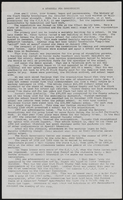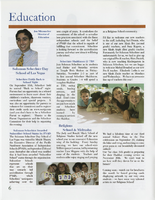Search the Special Collections and Archives Portal
Search Results
Stephen Schneider oral history interview
Identifier
Abstract
Oral history interview with Stephen Schneider conducted by Stefani Evans on October 10, 2017 for the Building Las Vegas Oral History Project. In this interview, Schneider discusses his early life and English education. He recalls arriving to Las Vegas, Nevada in 1967, being an English teacher at Bishop Gorman High School, and his early interest in real estate. Schneider talks about obtaining his real estate license and forming Berkshire Hathaway Americana Group Realtors. Lastly, Schneider discusses Special Improvement Districts.
Archival Collection
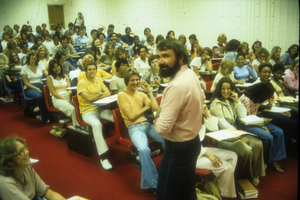
Slide of students in a classroom, University of Nevada, Las Vegas, circa 1970s
Date
Archival Collection
Description
Image
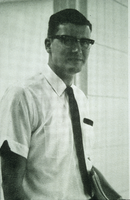
Slide of Donald Schmeidel, University of Nevada, Las Vegas, circa 1968
Date
Archival Collection
Description
Image
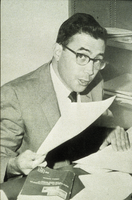
Slide of Jerome Vallen, University of Nevada, Las Vegas, circa 1968
Date
Archival Collection
Description
Image
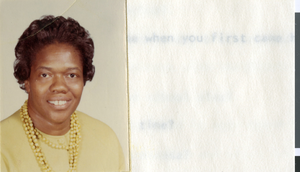
Stella Parson: portrait photograph
Date
Archival Collection
Description
Color portrait photograph of Stella Parson, circa 1977.
Image
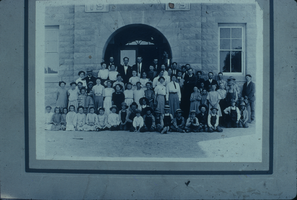
Slide of graduating class, Panaca, Nevada, circa 1960s - 1970s
Date
Archival Collection
Description
Image

Set of photographs including graduation at Kit Carson and Madison, Otis Harris at Marvel Manor: image 007
Date
Archival Collection
Image

Set of photographs including graduation at Kit Carson and Madison, Otis Harris at Marvel Manor: image 008
Date
Archival Collection
Image

